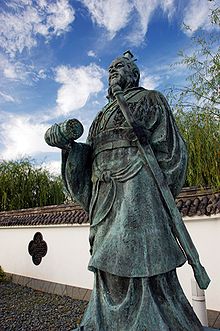
Back حرب سياسية Arabic جەنگی سیاسی CKB جنگ سیاسی Persian Քաղաքական պատերազմ Armenian Guerra politica Italian سياسي جګړه Pashto/Pushto Guerra política Portuguese Партийно-политическая работа Russian Lufta politike Albanian Політична війна Ukrainian

| Part of a series on |
| War (outline) |
|---|
 |
Political warfare is the use of hostile political means to compel an opponent to do one's will. The term political describes the calculated interaction between a government and a target audience, including another state's government, military, and/or general population. Governments use a variety of techniques to coerce certain actions, thereby gaining relative advantage over an opponent. The techniques include propaganda and psychological operations ("PsyOps"), which service national and military objectives respectively. Propaganda has many aspects and a hostile and coercive political purpose. Psychological operations are for strategic and tactical military objectives and may be intended for hostile military and civilian populations.[1]
Political warfare's coercive nature leads to weakening or destroying an opponent's political, social, or societal will, and forcing a course of action favorable to a state's interest. Political war may be combined with violence, economic pressure, subversion, and diplomacy, but its chief aspect is "the use of words, images and ideas".[2] The creation, deployment, and continuation of these coercive methods are a function of statecraft for nations and serve as a potential substitute for more direct military action.[3] For instance, methods like economic sanctions or embargoes are intended to inflict the necessary economic damage to force political change. The utilized methods and techniques in political war depend on the state's political vision and composition. Conduct will differ according to whether the state is totalitarian, authoritarian, or democratic.[4]
The ultimate goal of political warfare is to alter an opponent's opinions and actions in favour of one state's interests without utilizing military power. This type of organized persuasion or coercion also has the practical purpose of saving lives through eschewing the use of violence in order to further political goals. Thus, political warfare also involves "the art of heartening friends and disheartening enemies, of gaining help for one's cause and causing the abandonment of the enemies'".[5]: 151 Generally, political warfare is distinguished by its hostile intent and through potential escalation; but the loss of life is an accepted consequence.